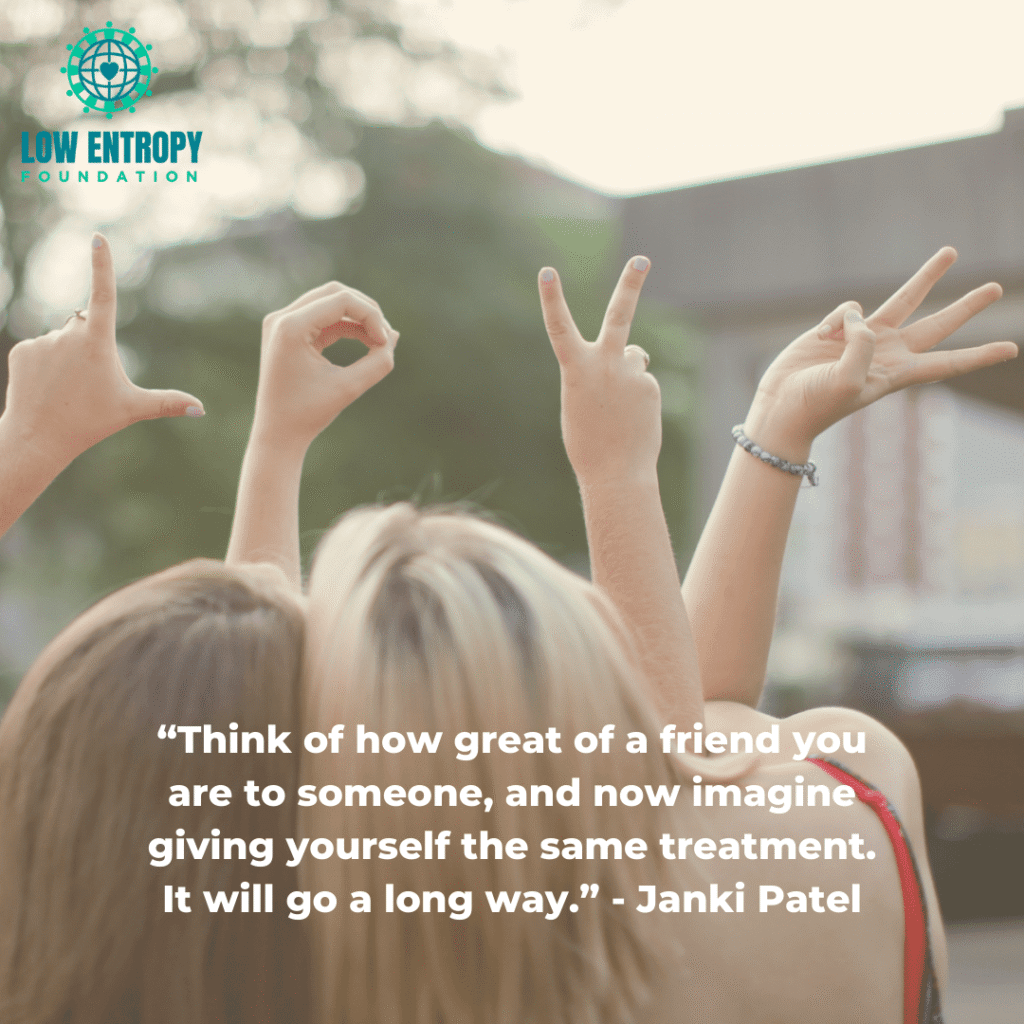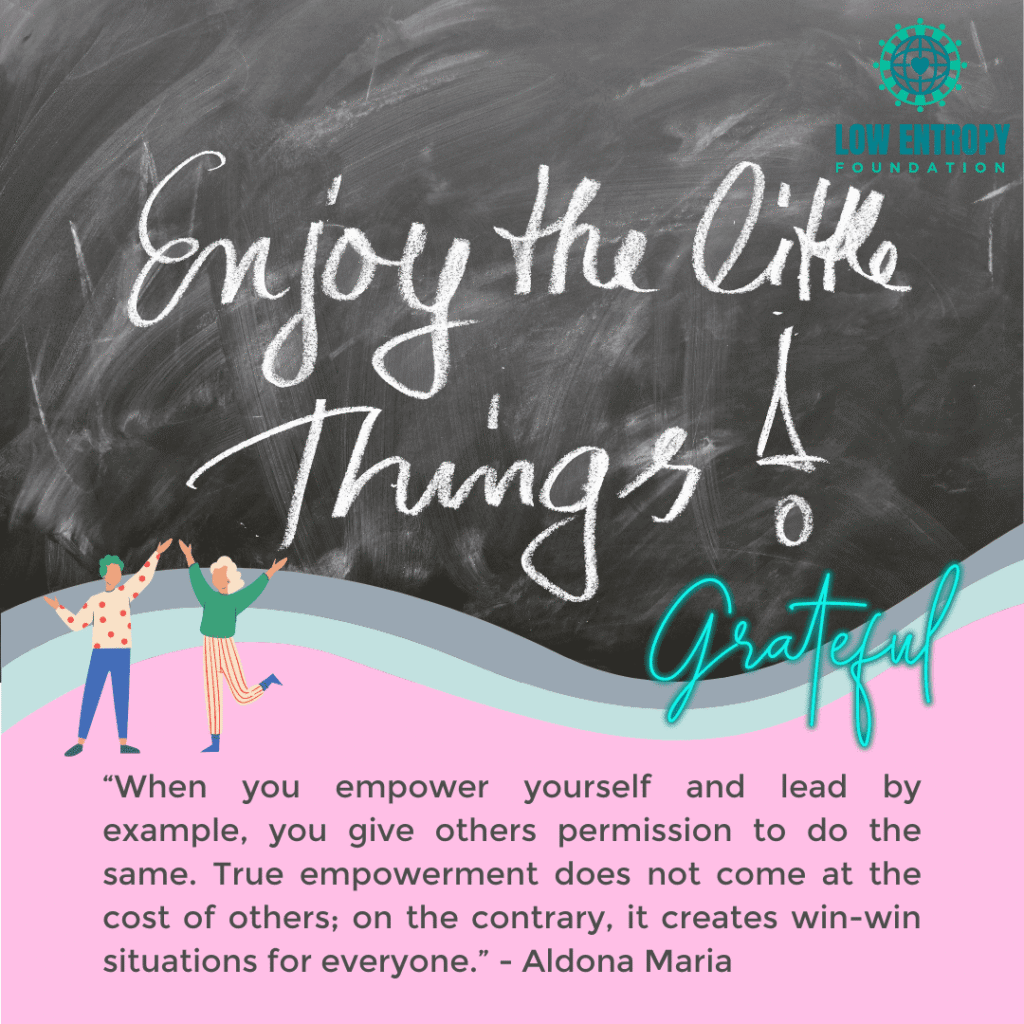Trying
Cristina Crescenzo (she/her/hers), Low Entropy Volunteer Writer I have been having a lot of sleepless nights, so naturally I listen to music to put myself to sleep, but last night I came across a song I haven’t heard in a while. It was “this is me trying” by Taylor Swift. While I was listening […]
Reconstruction

Low Entropy Volunteer Writer Janki Patel always put herself last, until she couldn’t hold herself together any more. Guided by a set of simple principles, Janki shares how she was able to build herself back up. Have you ever given great advice to others but never followed your own? That is the story of […]
Empowering Language to Cultivate Gratitude & Abundance

Low Entropy Volunteer Writer Aldona Maria shares simple techniques to empower ourselves through language by cultivating gratitude and abundance in our expressions. The language we use says a lot about how we perceive the world. In this blog post, I will be sharing with you a simple technique to empower yourself through language by cultivating […]
